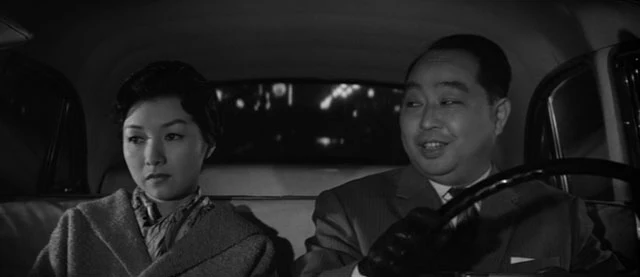 |
| Ivan Mozzhukhin in Feu Mathias Pascal |
Romilde: Marcelle Pradot
Adrienne: Lois Moran
Mathias's Mother: Marthe Mellot
Aunt Scholastica: Pauline Carton
Sylvia Caporale: Irma Perrot
The Widow Pescatore: Mireille Barsac
Jérôme Pomino: Michel Simon
Terence Papiano: Jean Hervé
Scipio: Pierre Batcheff
Batta Maldagna: Isaure Douvan
Director: Marcel L'Herbier
Screenplay: Marcel L'Herbier
Based on a novel by Luigi Pirandello
Cinematography: Jimmy Berliet, Fédote Bourgasoff, Paul Guichard, René Guichard, Jean Letort, Nikolas Roudakoff
Art direction: Erik Aaes, Alberto Cavalcanti, Lazare Meerson
Feu Mathias Pascal takes nearly three hours to demonstrate the truth of Kris Kristofferson's observation that "Freedom's just another word for nothing left to lose." Mathias is a studious young man working on a magnum opus, The History of Freedom, while the world around him begins to crumble: His widowed mother is cheated out of her home by an unscrupulous magistrate in their small Italian town. Meanwhile, his shy, homely friend Pomino wants him to court Romilde on his behalf, but she secretly has a crush on Mathias, who falls in love with and marries her. Because Romilde is under the thumb of her shrewish, demanding mother the marriage quickly sours, and when the two people Mathias loves more than any others, his mother and his infant daughter, die, he decides to leave town. In Monte Carlo, he wins a fortune at roulette, but after deciding to go home he learns that he has been declared dead. Embracing this new opportunity for freedom, he goes incognito to Rome, where he spots the pretty Adrienne and, following her home, takes a room that her father has for rent. There's much ado involving a plot to marry Adrienne to the odious Terence, and in the course of it Mathias realizes that you can't have your freedom and enjoy it too. It's a fascinating mess of a film, with startling shifts in tone from pathos -- the death of Mathias's mother and child -- to Kafkaesque surrealism -- Mathias's stint as an assistant librarian in a dusty, rat-filled jumble of a library -- to romantic comedy -- his rescue of Adrienne from the clutches of Terence and his fake-spiritualist cohorts. The narrative gets a little elliptical, especially toward the end, when Mathias exposes the corrupt magistrate who cheated his mother. But the Russian actor Ivan Mozzhukin is adept at both the pathos of Mathias's life and the Buster Keaton-like deadpan comedy of much of the film, and he's well-supported by the cast, including Michel Simon in one of his earliest roles as Pomino. Filmed on location in San Gimignano, Monte Carlo, and Rome, the movie provides glimpses of such familiar places as the Spanish Steps, the Trevi Fountain, and the Forum, strikingly free of traffic and tourists.





















